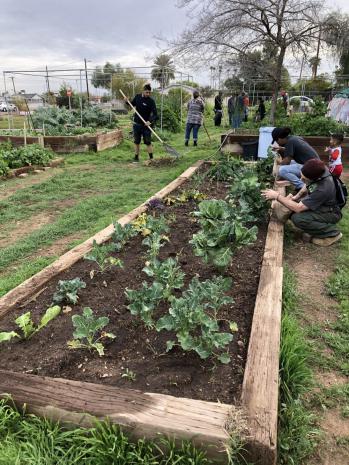
Breaking News
 EXCLUSIVE: "The HUGE Elephant In The Room Is Actually What Jeffrey Epstein Was Best At..."
EXCLUSIVE: "The HUGE Elephant In The Room Is Actually What Jeffrey Epstein Was Best At..."
 EXCLUSIVE INTERVIEW: Republican Candidate For Texas Governor "Doc" Pete Chambers Joins...
EXCLUSIVE INTERVIEW: Republican Candidate For Texas Governor "Doc" Pete Chambers Joins...
 Epstein Files Trigger Political Fallout Across Europe
Epstein Files Trigger Political Fallout Across Europe
 Conjoined twin 'influencers' who have gained more than 280,000 followers with their intimate
Conjoined twin 'influencers' who have gained more than 280,000 followers with their intimate
Top Tech News
 How underwater 3D printing could soon transform maritime construction
How underwater 3D printing could soon transform maritime construction
 Smart soldering iron packs a camera to show you what you're doing
Smart soldering iron packs a camera to show you what you're doing
 Look, no hands: Flying umbrella follows user through the rain
Look, no hands: Flying umbrella follows user through the rain
 Critical Linux Warning: 800,000 Devices Are EXPOSED
Critical Linux Warning: 800,000 Devices Are EXPOSED
 'Brave New World': IVF Company's Eugenics Tool Lets Couples Pick 'Best' Baby, Di
'Brave New World': IVF Company's Eugenics Tool Lets Couples Pick 'Best' Baby, Di
 The smartphone just fired a warning shot at the camera industry.
The smartphone just fired a warning shot at the camera industry.
 A revolutionary breakthrough in dental science is changing how we fight tooth decay
A revolutionary breakthrough in dental science is changing how we fight tooth decay
 Docan Energy "Panda": 32kWh for $2,530!
Docan Energy "Panda": 32kWh for $2,530!
 Rugged phone with multi-day battery life doubles as a 1080p projector
Rugged phone with multi-day battery life doubles as a 1080p projector
 4 Sisters Invent Electric Tractor with Mom and Dad and it's Selling in 5 Countries
4 Sisters Invent Electric Tractor with Mom and Dad and it's Selling in 5 Countries
How Phoenix Feeds The Hungry With Fresh Food While Saving Local Businesses and Farms

In Arizona, the city of Phoenix has managed to save dozens of farms and restaurants, while also getting free meals to those who need it most.
Between July and December in 2020, the Feed Phoenix program provided more than 50,000 meals to local residents—an amazing feat in itself, but only the beginning.
When the city received its CARES Act federal funding in April, it could have simply directed the money to food banks. Instead, it asked a nonprofit group, Local First Arizona, to take a more holistic approach to shore up the city's food system.
The resulting Feed Phoenix program has been a success on all fronts, connecting struggling farmers with restaurants and caterers in need of business. The nonprofit buys produce directly from the farms, then pays the restaurants to prepare and deliver free meals to citizens in need.
The meals are then distributed at 30 locations, such as food banks, free of charge to those in need. What's more, it is fresh, ready-to-eat food—much more nutritious than the canned and boxed items normally available at such places.
Local First Arizona was in a unique position to take on this project. For years, the charity has been working with about 3,000 locally-owned businesses to promote buying local.
"The city could have awarded one very large contract to one very large company to just prepare all of those meals," Kimber Lanning, the nonprofit's founder and executive director, told Bloomberg. "Instead, we decided to create a program to touch as many businesses as possible."



